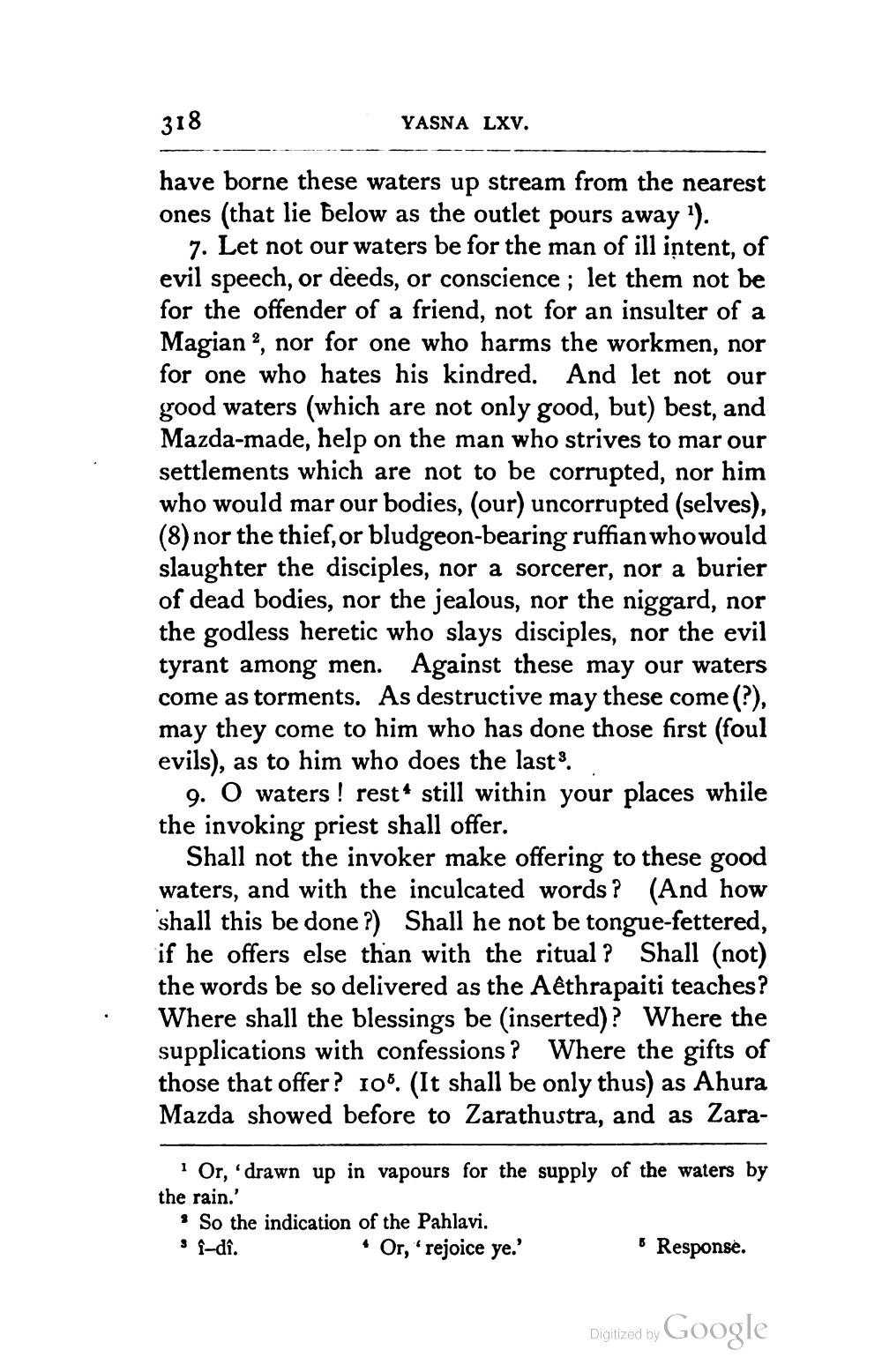________________
318
YASNA LXV.
have borne these waters up stream from the nearest ones (that lie below as the outlet pours away ?).
7. Let not our waters be for the man of ill intent, of evil speech, or deeds, or conscience; let them not be for the offender of a friend, not for an insulter of a Magian ?, nor for one who harms the workmen, nor for one who hates his kindred. And let not our good waters (which are not only good, but) best, and Mazda-made, help on the man who strives to mar our settlements which are not to be corrupted, nor him who would mar our bodies, (our) uncorrupted (selves), (8) nor the thief, or bludgeon-bearing ruffian who would slaughter the disciples, nor a sorcerer, nor a burier of dead bodies, nor the jealous, nor the niggard, nor the godless heretic who slays disciples, nor the evil tyrant among men. Against these may our waters come as torments. As destructive may these come(?), may they come to him who has done those first (foul evils), as to him who does the lasts.
9. O waters ! rest* still within your places while the invoking priest shall offer.
Shall not the invoker make offering to these good waters, and with the inculcated words ? (And how shall this be done?) Shall he not be tongue-fettered, if he offers else than with the ritual ? Shall (not) the words be so delivered as the Aethrapaiti teaches? Where shall the blessings be inserted)? Where the supplications with confessions ? Where the gifts of those that offer? 10%. (It shall be only thus) as Ahura Mazda showed before to Zarathustra, and as Zara
Or, drawn up in vapours for the supply of the waters by the rain.'
So the indication of the Pahlavi. Si-di. • Or,“ rejoice ye.
• Response.
Digitized by
Digitized by Google




